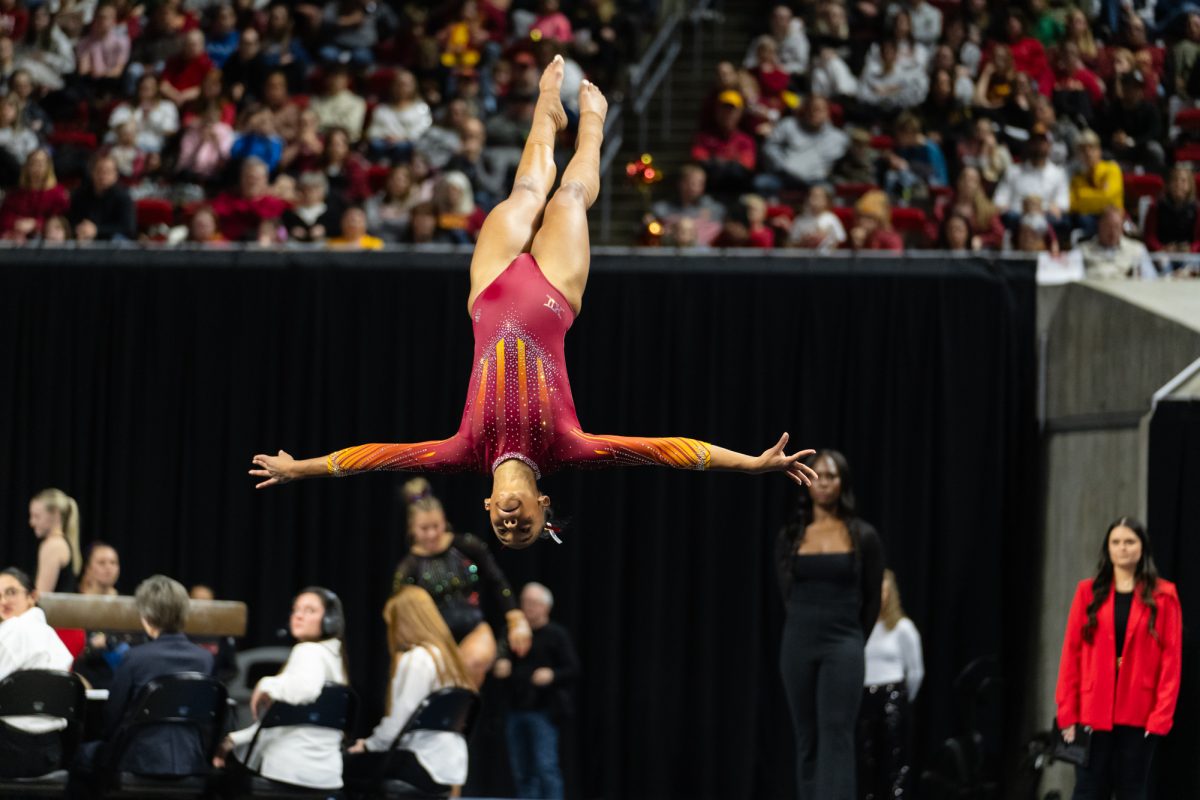New Latino fraternity hopes to recruit, open doors on campus
October 23, 2005
Iowa State could soon be home to a new multicultural fraternity, although questions exist over whether enough members can be found.
Phi Iota Alpha, the oldest Latino fraternity in the United States, has been given approval by both the University Committee on Fraternities and Sororities and the Multicultural Greek Council to become a part of the ISU Greek Community.
On Friday, Juan Guardia, graduate student in educational leadership and policy studies, held an informational session, although no prospective members attended.
He was the one who brought the fraternity to the attention of UCFS earlier this fall.
“It’s great to give Latino students options,” Guardia said. “Each organization is unique in its own specific facet.”
Although historically Latino, the fraternity is open to any male undergraduate or graduate student or alumnus.
According to the fraternity’s Web site, the purpose of the fraternity is to promote personal growth and development nurtured in a group environment by focusing on each member’s academic, professional and social lives.
JD Greiner, president of Interfraternity Council, said the council supports the expansion of the Greek community, including non-traditional chapters.
“If they can find the men they need to start their chapter, then they have the approval to do so,” said Greiner, senior in agricultural engineering. “This is definitely one of the areas we’ve wanted to expand.”
The Multicultural Greek Council was approved this fall by IFC for non-traditional Greek chapters at Iowa State.
“It allows everyone to find a house that is best for them in the community,” Greiner said.
UCFS seeks what is best for the Greek Community, Greiner said, and accepts proposals to expand the community.
Greiner said the fraternity can eventually become a colony and then an official part of MGC and the Greek Community.
Guardia joined last spring when he learned of the fraternity through a colleague.
“The process to become a member is completed within a semester,” he said.
To be considered for membership, each candidate must be interviewed by Guardia and the Midwest Governor, Felderi Santiago, before filling out an extensive application to be sent to the national office in Ohio. If approved by national officials, the potential member will receive a bid.
Once the bid is received, the potential member will begin the educational process to learn more about themselves, the fraternity and the Latino culture, Guardia said. Once this process is complete, the member will “cross” in a secret ceremony.
Until the member “crosses,” outside members are not informed of the membership. After the ceremony, the member is allowed to wear the letters of the fraternity.
Guardia said three men have contacted him to join the fraternity, and he would like to see the number increase.
Because the names of the people requesting membership cannot be identified until after they “cross,” they were unable to be reached for comment.
Guardia said the fraternity is not based on a division of race.
“It is a way to embrace the tradition and culture,” he said. “It is great to be around members of our community as well as members of other communities.”
The addition of the chapter to Iowa State is part of the fraternity’s expansion to the Midwest.
“There are chapters in the East, South and California, but we want to work our way to the Midwest,” Guardia said.
Thirty-one undergraduate chapters are located in the United States, in addition to five alumni chapters.






